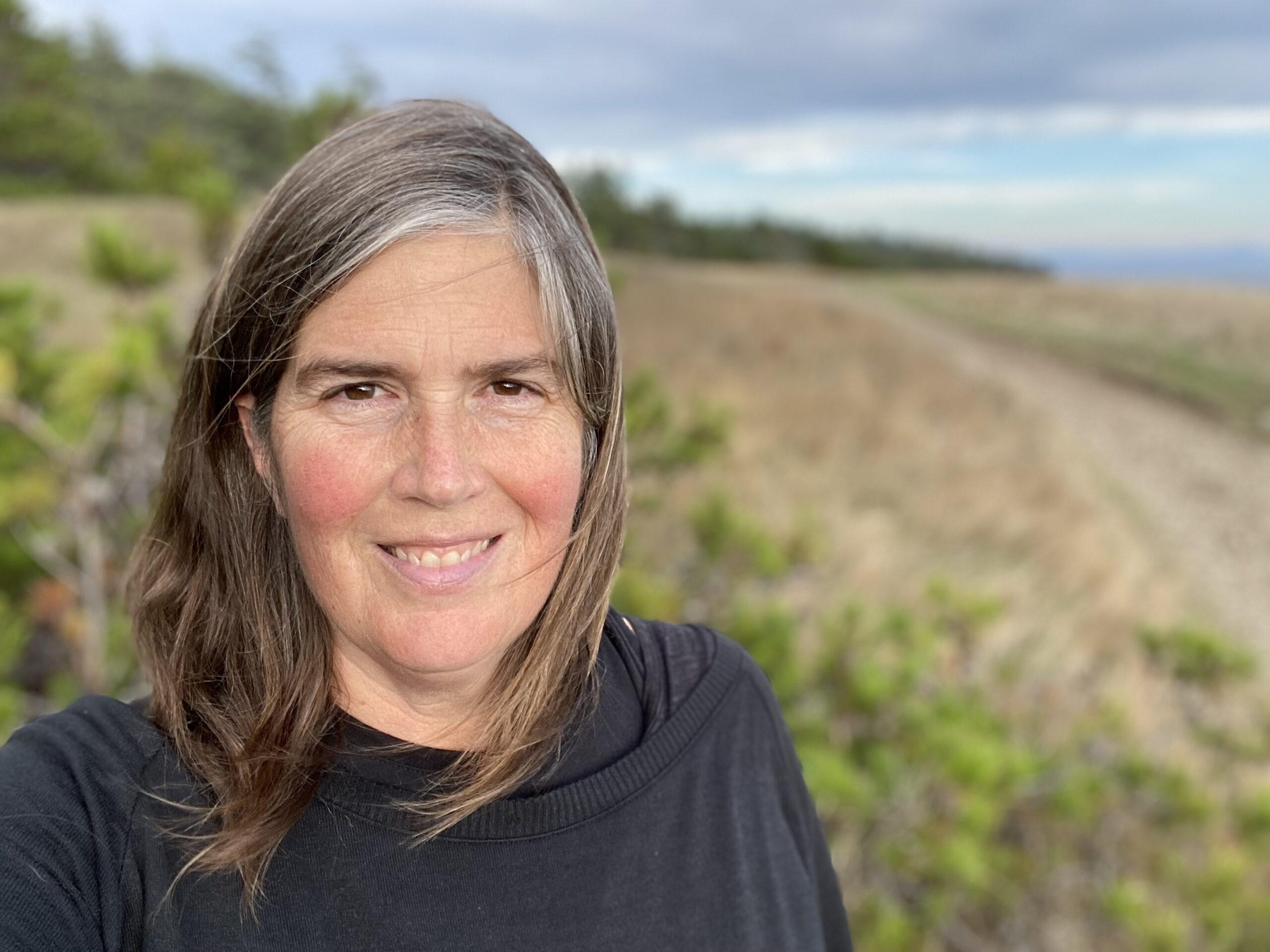Finding the Form with Andrea Scott
By Andrea Scott
The glosa was the first poetic form that got me really excited about writing poetry, and digging into the puzzle that form poetry can be. In my first poetry course in 2020 (an introduction to poetry at Athabasca University), part of our required reading was In Fine Form: The Canadian Book of Form Poetry, edited by Sandy Shreve and Kate Braid (I love this book still!). Reading through the “glosa” section, I was enchanted with the form, and also with the work of P.K. Page, who popularized the glosa in Canada.
In spring of 2023, I attended a Zoom poetry course with Yvonne Blomer, where we were invited to study a master and dig deep into their work to help generate our own. Two of my poems that appear in TNQ’s issue 171 came from that exploration: “Dear P.K. Page,” where I’m in conversation with P.K., asking how we’re doing with being stewards of the Earth (I think I can hear her answer), and also my glosa “Prepping the Beds.” I wanted to gloss P.K.’s “A Bagatelle” for its four spectacular lines that I’ve borrowed as a cabeza. The rich garden imagery in P.K.’s poem caught my attention. I was in the middle of a divorce at the time, and spending all free time on things I could (sort of) control, or at least get my hands on, like weeding in my old, messy garden.
What a garden I tumble into.
What a froth
and buzz of blossoms.
Sun hot and glazing leather-leaf.
— P.K. Page
From my class notes, I see that Yvonne rolled her metaphor dice for the group, and after I asked myself some ridiculous questions including, “Am I a reluctant party clown?” I became fixated on the drum, on how love might be like a drum. This helped me build up an extended metaphor into a piece on gardening, and love lost.

These two P.K.-inspired poems are bookends in my chapbook, In the Warm Shallows of What Remains. I was thrilled to get permission to use one of P.K.’s paintings, Angels, as cover art. The art perfectly complements themes in the book, which is a study of things playful, earthy and apocalyptic.

Andrea Scott’s chapbook, In the Warm Shallows of What Remains, was published by Raven Books in spring 2024. Other publications include FreeFall, Geist, Arc Poetry Magazine, The Humber Literary Review and The Antigonish Review. She was longlisted for the 2023 Room Poetry Contest and the 2023 CBC Poetry Prize. She won the 2024 Raven Chapbooks Contest, the 2022 Geist Erasure Poetry Contest, and was a finalist for the FBCW 2022 Literary Contest and the 2020 CBC Poetry Prize. She writes, teaches high school English, and lives with her son and cats in Victoria, B.C.

